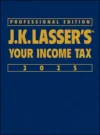An Offer-In-Compromise You Can’t Refuse…But The IRS Can
An Individual Retirement Account (IRA) rollover refers to the process of moving funds from one retirement account to another without incurring taxes or penalties. This transfer can occur between different types of retirement accounts, such as from one IRA to another or from an employer-sponsored retirement plan (like a 401(k)) to an IRA.
Here are key points about IRA rollovers:
Tax-Free Transfer The rollover process allows individuals to move funds from one eligible retirement account to another without triggering immediate taxes or penalties. This is different from a distribution, where funds are withdrawn and then deposited into another account, which may have tax implications.
Time Limit Generally, individuals have 60 days to complete the rollover after receiving the distribution from the original account. If the funds are not deposited into the new account within this timeframe, the distribution may be treated as taxable income, and early withdrawal penalties may apply.
Direct Rollover To avoid potential issues with the 60-day rule, individuals can opt for a direct rollover, also known as a trustee-to-trustee transfer. In a direct rollover, the funds are transferred directly from one financial institution to another, bypassing the account holder. This method eliminates the risk of missing the 60-day deadline and ensures a smoother transfer process.
Annual Limit A taxpayer may only enjoy one tax-free rollover in any 12-month period. Note, however, the annual rollover limit does not apply to direct rollovers which are trustee-to-trustee transfers. In this case, the funds are transferred directly between financial institutions without the account holder taking possession of the funds. These direct rollovers are not considered rollovers and, therefore, are not subject to the once-per-year limitation.
Types of Rollovers:
Traditional IRA to Traditional IRA Rollover: Moving funds from one traditional IRA to another.
Roth IRA to Roth IRA Rollover: Transferring funds from one Roth IRA to another.
401(k) to IRA Rollover: Rolling over funds from an employer-sponsored 401(k) plan to an IRA.
Traditional IRA to Roth IRA Conversion: While not a rollover in the traditional sense, individuals can convert funds from a traditional IRA to a Roth IRA, triggering taxable income in the process.
Individuals must report the rollover on their tax return, even though it is a tax-free event. This helps ensure the IRS is aware the transaction was a qualified rollover and not a taxable distribution. If you’re thinking about an IRA rollover, don’t forget one crucial and often overlooked rule: the same-property rule. This rule requires a taxpayer to roll over exactly what was received. For example, if you receive stock, you have to rollover the stock received. Any violation of the rules will trigger a distribution.
In 2015 James Caan received an unplanned distribution from his retirement account. The trustee of the IRA was UBS, which issued the distribution as a result of a hedge fund that refused to provide a proper year-end valuation. UBS ultimately resigned as trustee and made a distribution of the hedge fund interest to Mr. Caan. We can only fantasize what would make UBS resign as trustee…are you telling me that the Tattaglia Family guarantees our investment? Perhaps not that extreme, but UBS did issue Mr. Caan a 1099-R to report the distribution in the amount of $1.9 million based on the 2013 valuation.
For his 2015 return, James did list the distribution but indicated it was nontaxable. He later liquidated the hedge fund interest and contributed the cash received to a new IRA indicating a rollover. The problem is…the liquidation and contribution didn’t happen until 2017, well past the 60-day rollover window. This is business and this man is taking it very, very personal.
The IRS indicated both the 60-day rollover rule and the same-property rule were violated and issued a tax bill for 2015 in the amount of $780,000 PLUS an accuracy-related penalty of a whopping $155,000. We’re going to the mattresses….err…Tax Court.
Unfortunately, James Caan passed away in July of 2022 but the Estate of James Caan said then business will not have to suffer, all right?! In the case Estate of Caan v. Commissioner, 161 TC No. 6 decided October 18, 2023, the Tax Court ruled a proper rollover did not occur. The decision validated the actions of the IRS in that the IRS is not permitted to waive violations of the same-property rule (note, the IRS can waive the 60-day rule in certain limited circumstances). Thus, it appears the whole situation could have been avoided had the hedge fund interest been rolled over to a new trustee and then liquidated. All James Caan wanted was somebody good – and I mean very good – to help him with the rollover.
Credit
A tax credit directly reduces tax liability, as opposed to a deduction that reduces income subject to tax.



